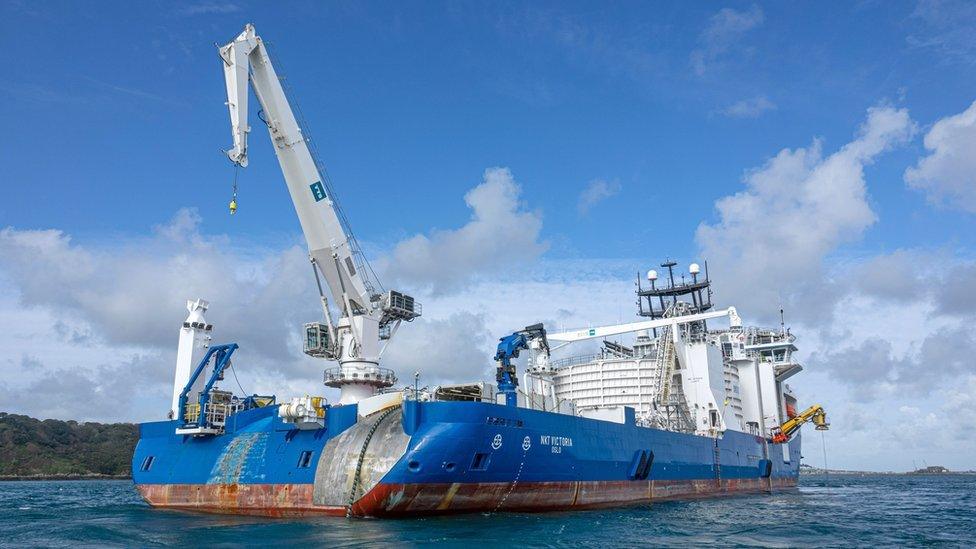Guernsey targets 'net zero' greenhouse gas emissions by 2050
- Published
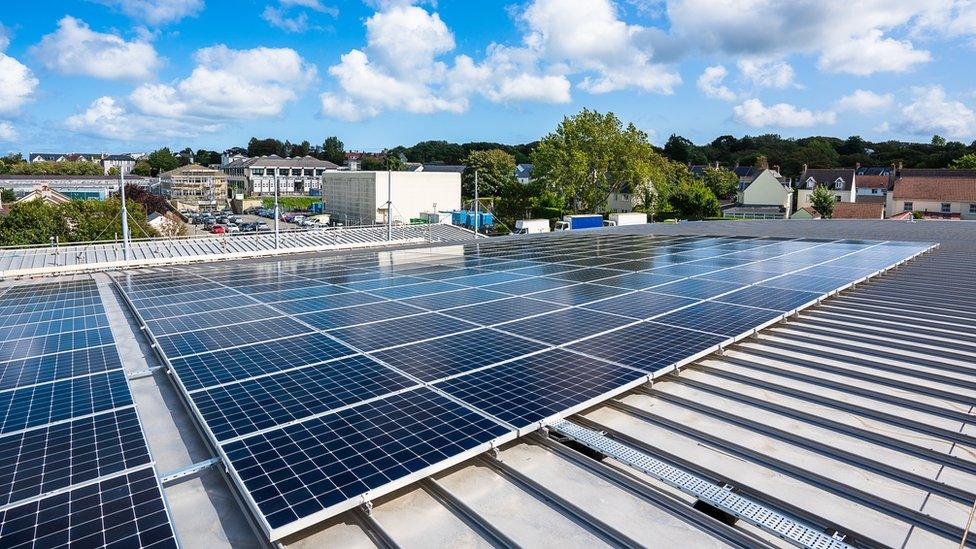
The 30-year strategy will prioritise the creation of on-island green energy generation
Guernsey will aim to reach net zero greenhouse gas emissions by 2050, after a 30-year energy strategy was approved by the States.
The energy policy, external sets an "interim" target of a 57% reduction on 1990 emission levels over the next 10 years.
Deputies also agreed to plans for a direct undersea cable to France, subject to approval of a business case.
Another goal of the strategy is to facilitate "on-island renewable or low-carbon generation" through competition.
The Committee for Environment and Infrastructure's (E&I) policy letter lays out the overall objectives:
Decarbonisation
Security and resilience of supply
Consumer value and choice
Equity and fairness
Supportive of a vibrant economy
Greater energy independence
The island's CO2 emissions rose by eight times when the cable connecting it to Jersey was down between October 2018 and November 2019.
The approval of a direct line to the European grid will provide greater access to hydroelectric and nuclear-generated electricity, provide "security of supply" and support the expansion of "on-island [including offshore] renewables", the letter outlines.
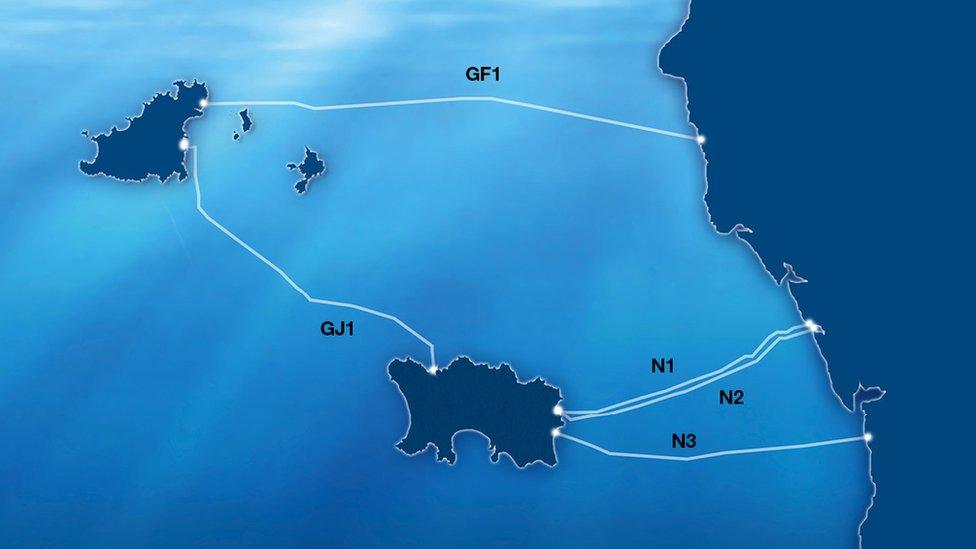
The proposed direct link to the European grid would be in addition to the current link to Jersey
One of the ways the strategy seeks to reduce emissions is investigating opening up the electricity market, as currently supply is exclusively delivered by States-owned Guernsey Electricity.
The strategy instructs the Committee for Economic Development and E&I to consult and prepare a report on the viability of allowing competition from local renewable and low-carbon energy producers.
The committees must submit their findings by the end of 2021.
During debate, president of E&I Barry Brehaut argued the policy would ensure the States had a "strategic direction for energy" and emphasised Guernsey Electricity had expressed support for it.
Deputy Brehaut said: "With the flexibility that is built into this policy, it can adapt to the challenges we face now and in the future."
- Published20 November 2019
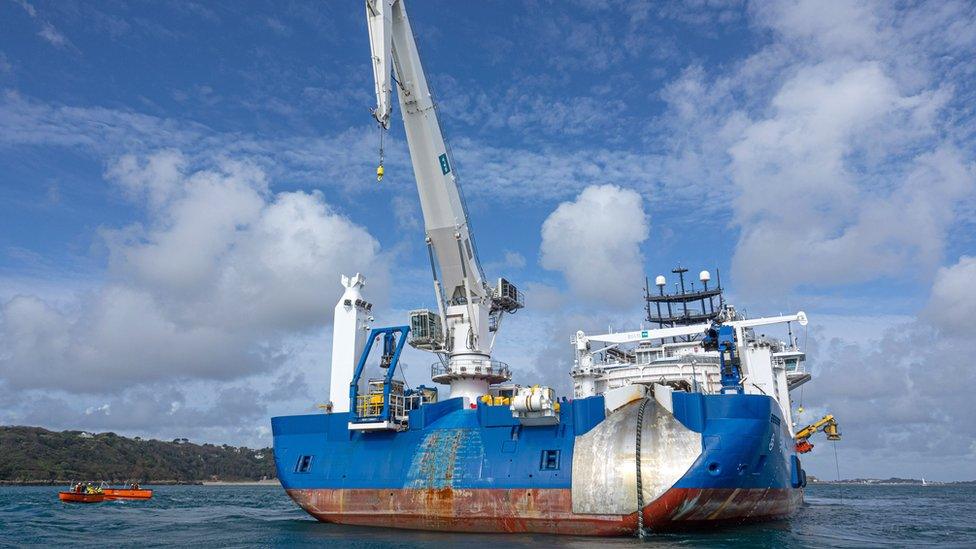
- Published13 November 2019

- Published31 October 2019
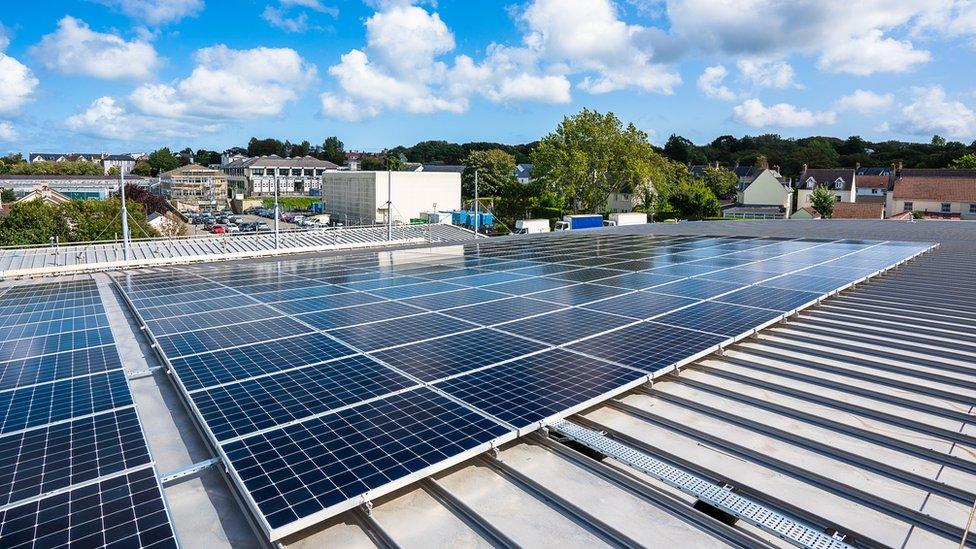
- Published11 October 2019
